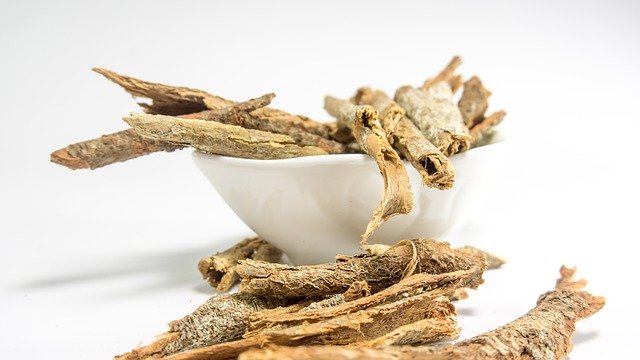 Anonymous: “My brother-in-law has offered to pay all expenses for me to see an Ayurvedic Practitioner that he sees for treatment in New Jersey. I have seen one before here in my state. My viewpoint is that despite how ill I am, it would be putting my faith into Eastern Medicine, instead of in Jesus Christ, for my healing. Am I correct in my view? Would you explain further, and why it would be unwise to seek healing from this type of Practitioner?”
Anonymous: “My brother-in-law has offered to pay all expenses for me to see an Ayurvedic Practitioner that he sees for treatment in New Jersey. I have seen one before here in my state. My viewpoint is that despite how ill I am, it would be putting my faith into Eastern Medicine, instead of in Jesus Christ, for my healing. Am I correct in my view? Would you explain further, and why it would be unwise to seek healing from this type of Practitioner?”
Your viewpoint is correct. Were you to begin using Ayurvedic medicine, you would be putting your faith in an ancient Indian medicine system that is based on a pagan belief that health comes from the proper integration and balancing of the body, mind and spirit with the surrounding universe.
Well-known New Age guru Deepak Chopra, a proponent of Ayurvedic medicine, explained it best when he claimed Ayurvedic medicine “takes the intelligence of the universe and matches it with the intelligence of our own body.”
First, here is some basic information for those who are not familiar with Ayurvedic medicince.
According to a backgrounder available at the National Center for Complimentary and Integrative Health (NCCIH), which is part of the National Institutes for Health, Ayurvedic medicine draws its name from the Sanscrit word ayur (life) and veda (science or knowledge), thus meaning “science of life.”
Ayurvedic medicine is based on three main concepts – the idea of universal interconnectedness, the body’s constitution, and three life forces which they call doshas.
The concept of interconnectedness is based on the idea that all things in the universe (both living and nonliving) are joined together and that every human being contains elements that can be found in the universe. Disease arises when one is out of harmony with the universe.
The notion of the universe being a single dynamic whole into which humankind is imbedded is a pagan concept wholly embraced by today’s New Age and/or neopagan “eco-theologians” and their corresponding green religions. The New Age version fosters a religious worship of nature known as pantheism, which is based on the belief that the cosmos is animated by one spirit or is guided by a universal consciousness of which man is merely one more participant. This vision of the relationship between man and the planet is often referred to as “depth ecology.”
Christians do not believe that God is a “force” in the universe. We believe that while God created the universe, he transcends his creation because he is “infinitely greater than all His works” (CCC 299-300).
The second Ayurvedic concept is that of a person’s constitution, which they describe as an individual’s unique combination of physical and psychological characteristics that practitioners believe contribute to the way the body functions to maintain health.
The third concept concerns three life forces or energies. According to ayurveda, the five fundamental elements that make up the universe–space (akasha), air (vayu), fire (agni), water (apu) and earth (prithvi)–also make up the human physiology. By looking at how these elements work within us, Ayurveda identifies three basic biological humors or psychophysiological energies called doshas. A person’s health and ability to resist disease is thought to be related to the way these doshas are balanced.
 Ayurvedic treatment consists mainly in herbal formulas that either purge the body of impurities or increase resistance to disease. Lifestyle changes are also incorporated into treatment programs with patients encouraged to find ways to reduce stress and increase “harmony” in their life.
Ayurvedic treatment consists mainly in herbal formulas that either purge the body of impurities or increase resistance to disease. Lifestyle changes are also incorporated into treatment programs with patients encouraged to find ways to reduce stress and increase “harmony” in their life.
Currently, there are more than 600 herbal formulas and 250 single plant drugs included in the Ayurvedic “pharmacy” which are compounded according to texts issued by national medical agencies in India. Some of these drugs contain botanicals mixed with metals or other naturally occurring substances and are prepared according to precise measurements.
Unfortunately, many of these concoctions are dangerous and health officials in India and other countries, including the U.S., are taking steps to address this problem.
For instance, this 2017 study appearing in the International Journal of Occupational and Environmental Health found alarming levels of arsenic and mercury in commonly used Ayurvedic medicines.
“Lead was found in 65% of 252 Ayurvedic medicine samples with mercury and arsenic found in 38 and 32% of samples, respectively,” the report found. “Almost half of samples containing mercury, 36% of samples containing lead and 39% of samples containing arsenic had concentrations of those metals per pill that exceeded, up to several thousand times, the recommended daily intake values for pharmaceutical impurities.”
In 2015, the same journal published the findings of a screening performed on 115 persons who used Ayurvedic medicine which found that 40% of those screened had elevated lead levels in their blood.
The report concludes: “This is the largest cluster of lead and mercury toxicity following use of Ayurvedic supplements described in the literature in the US. Contamination of herbal products is a public health issue of global significance.”
As is the case with most “natural” products and supplements, there is simply too little regulation to guarantee that the products have not been contaminated in some way.
There are also concerns about the possible interaction of Ayurvedic formulas with other medicines a patient may be taking.
To date, there is no scientific evidence that Ayurvedic medicine works. Most clinical trials have been too small or contained design problems that rendered the results meaningless. The NCCIH contends that more rigorous research is needed to determine whether Ayurvedic medicine is safe and effective.
Personally, I would not even consider Ayurvedic treatment, first because it conflicts with my religious beliefs and second because its efficacy is unknown, which means that at the present time, the risks outweigh the benefits.
© All Rights Reserved, Living His Life Abundantly®/Women of Grace® http://www.womenofgrace.com
Women of Grace® has compiled a library of over 1400 articles on New Age and occult related material and has been offering them to the public for more than a decade – at no charge! If you appreciate our research, please prayerfully consider making a donation to support this vital work! Click here to donate!









